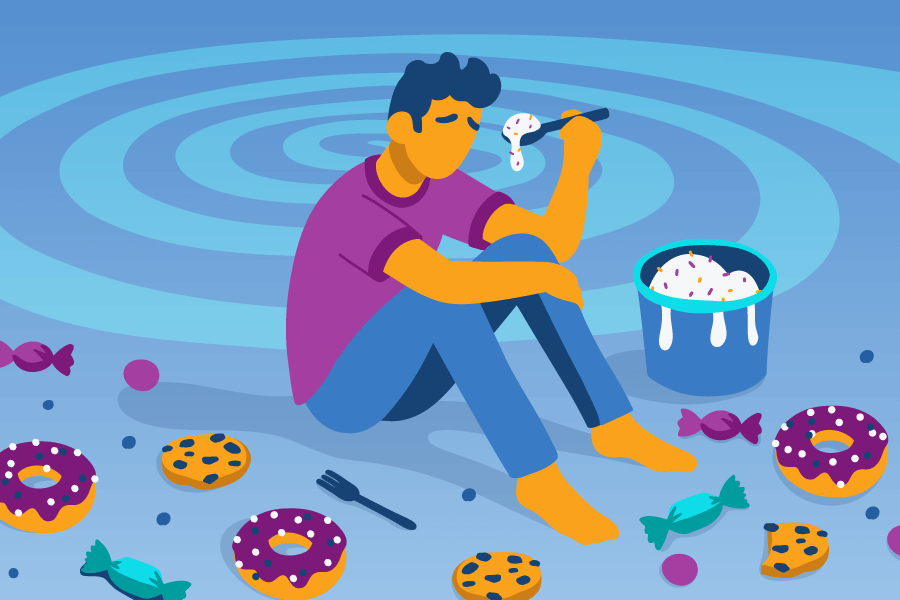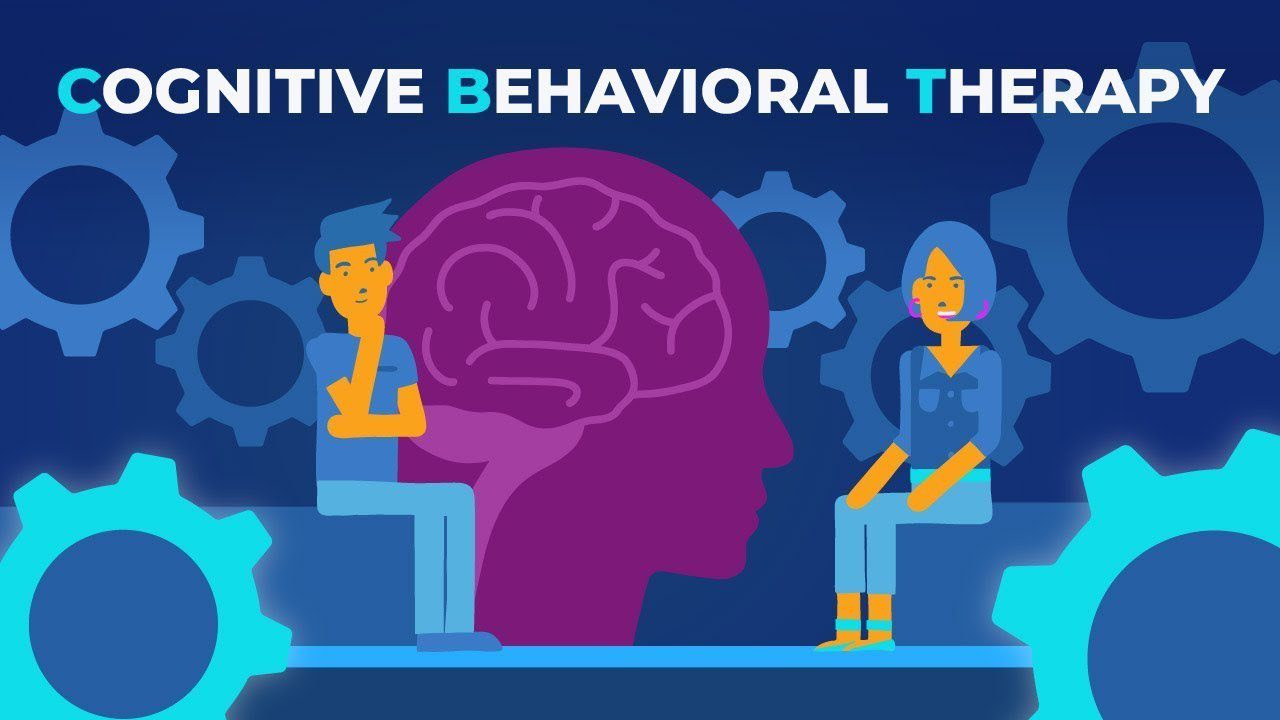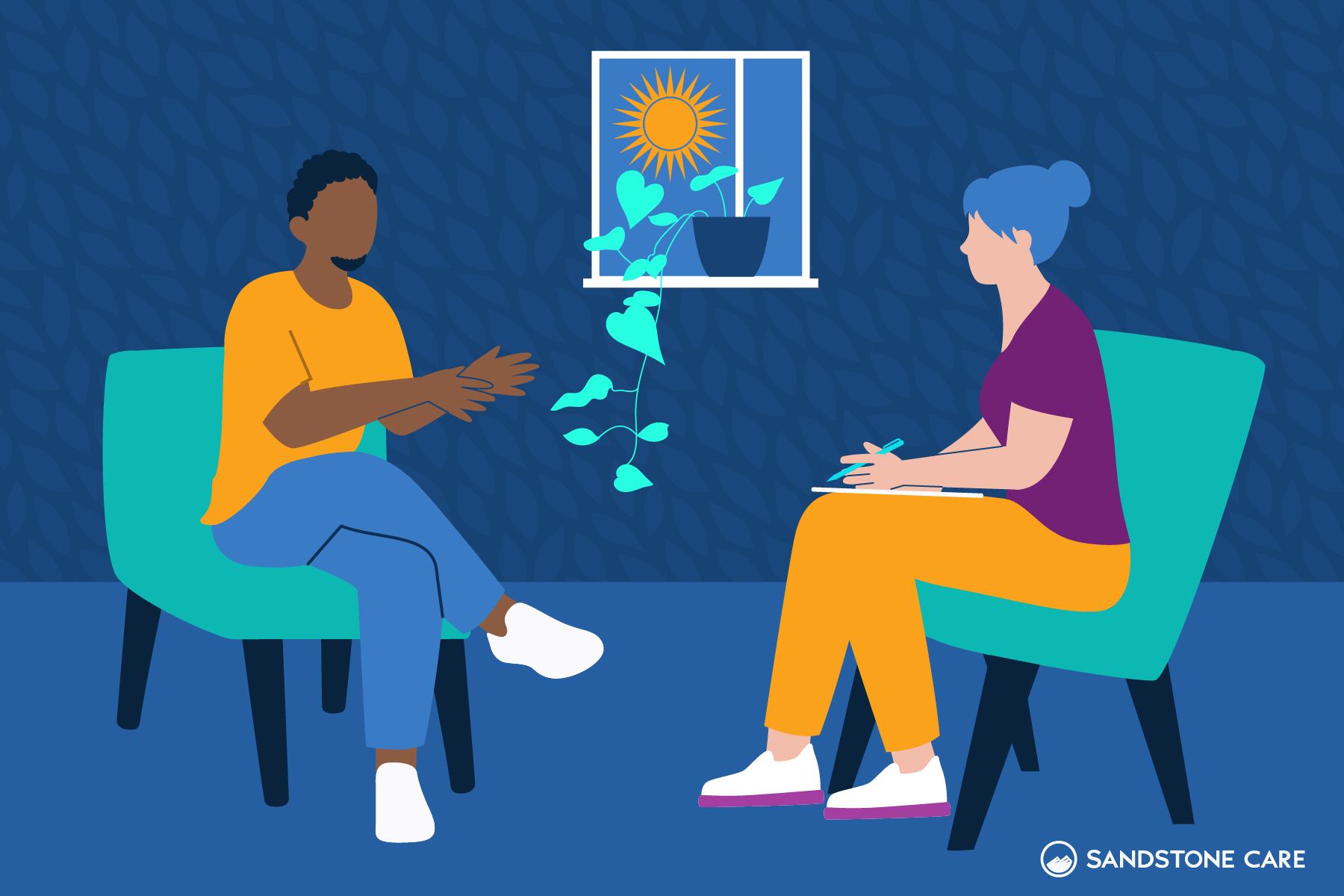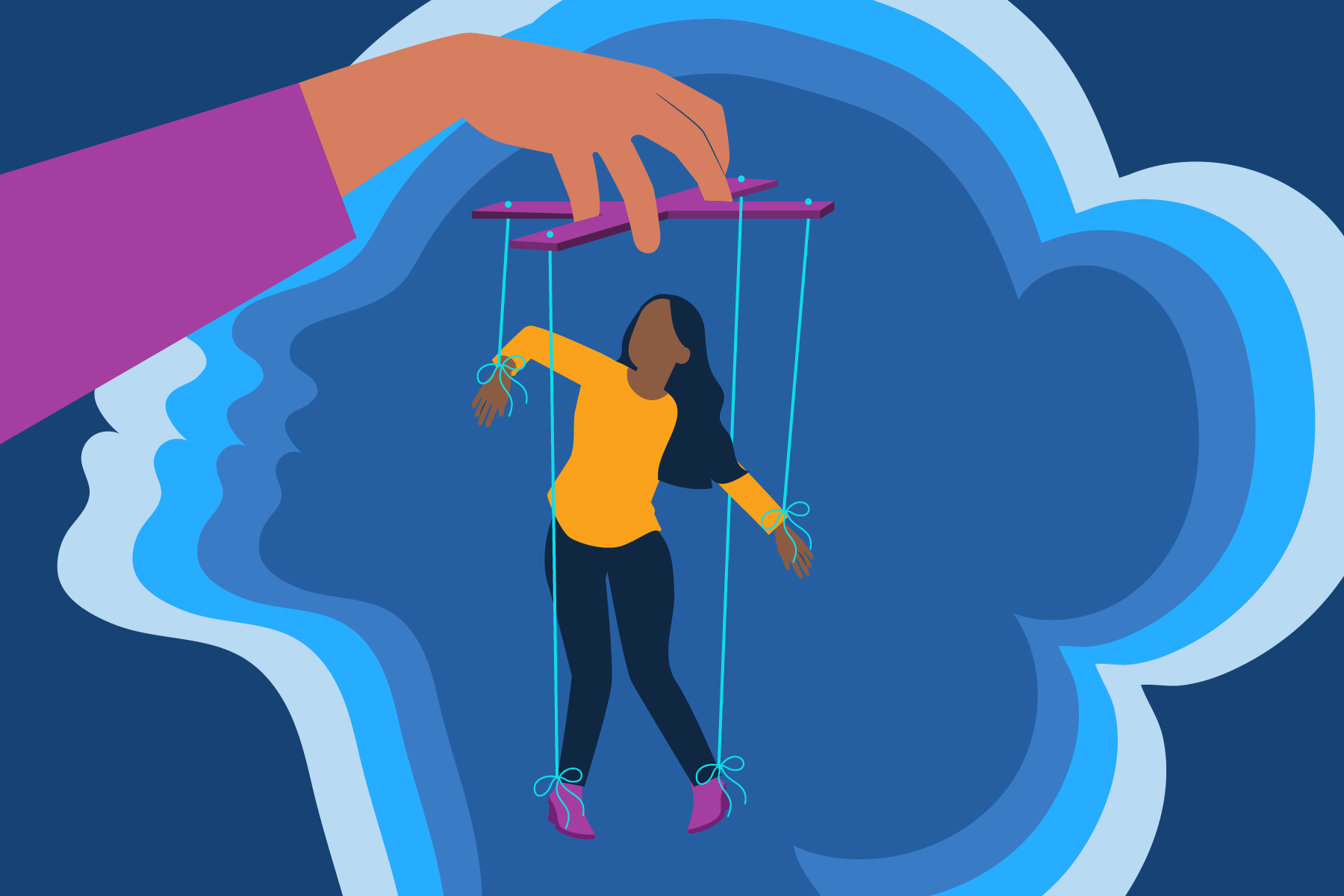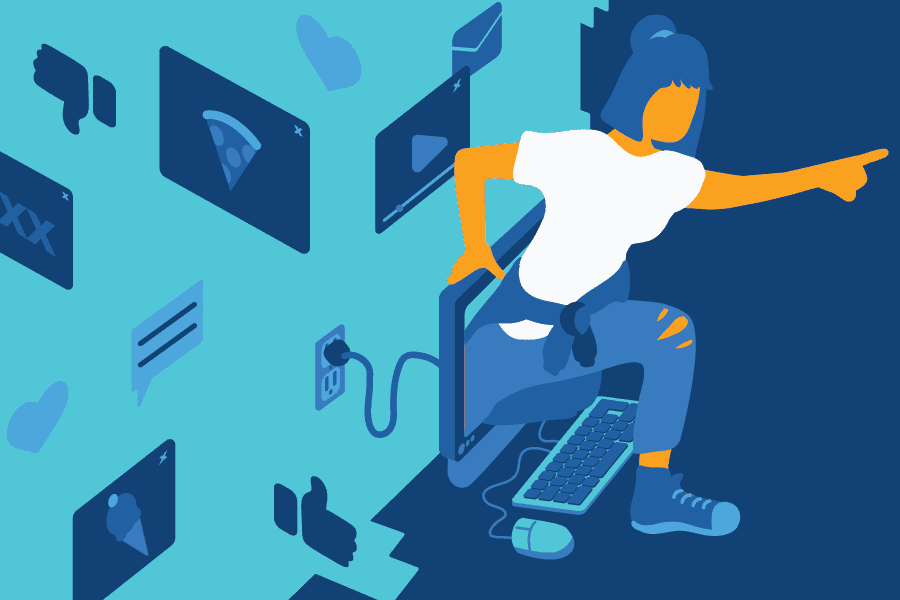Impulse Control Disorders Introduction
What Is Impulse Control Disorder?
Impulse control disorders are a set of behavioral disorders that make it difficult for an individual to manage their emotions, actions, or reactions.
Those with an impulse control disorder may even find themselves acting against their better judgment or lacking a sense of self-control.
What Does Impulse Control Disorder Mean?
Impulse control disorders mean an individual may feel compelled to engage in dangerous or high-risk behaviors that they wouldn’t ever do otherwise.
Left untreated, an individual may engage in rash, repetitive, or impulsive behaviors that can put themselves at risk or lead to other challenges like substance abuse, gambling, impulsive sexual behaviors, and more.
Those living with an impulse control disorder, or ICD, may experience a release of dopamine with these actions, with the brain being wired to “reward” itself with self-destructive behaviors.
HOW DO YOU KNOW IF YOU ARE BEING SELF-DESTRUCTIVE?
Call (888) 850-1890 to schedule your own personal mental health assessment and find out from the experts.
What Are the 5 Impulse Control Disorders?
Currently, the five impulse control disorders recognized by the Diagnostic and Statistical Manual of Mental Disorders, or DSM-5, are:
- Pyromania: a compulsive urge to engage in fire-setting.
- Pathological gambling: needing to gamble money, possessions, and more.
- Trichotillomania: compulsive hair-pulling of oneself.
- Intermittent explosive disorder (IED): characterized by intense angry outbursts, aggressive behavior, or even violence toward others or property.
- Kleptomania: a mental health disorder that makes it difficult to resist the urge to steal.
What Is the Most Common Impulse Control Disorder?
The most commonly diagnosed impulse control disorder is intermittent explosive disorder.
Depending on how it is diagnosed, it is estimated that IED can affect up to 7.3 percent of the general population of American adults.
At What Age Does Impulse Control Develop?
Impulse control skills develop in the brain at a young age, starting around three years old.
However, impulse control isn’t fully finished developing until much later, so there are many environmental circumstances that can impact the type of impulse control a person has.
Various factors such as family history, environmental factors, mental health conditions, substance abuse, and more can all inform the development of different types of impulse control disorders.
How Is Impulse Control Disorder Diagnosed?
Mental health disorders and impulse control disorders can be diagnosed by working with dedicated psychiatric professionals.
Talking about personal experiences and interviewing family members and loved ones can help professionals determine if an individual meets the diagnostic criteria for impulse control disorder.
Professionals may also utilize a USSP-P, a 59-question self-test designed to measure impulse control.
To identify Impulse Control Disorder (ICD), symptoms usually need to last for at least six to 12 months. Additionally, the disorder must cause serious disruptions to daily life.

Is this blog hitting close to home?
We’re here to help.
Disruptive, Impulse Control, and Conduct Disorders
Is Conduct Disorder an Impulse Control Disorder?
No. Conduct disorder is not a type of impulse control disorder, though they share many symptoms.
Conduct disorders and impulse control disorders are a commonly linked class of mood disorders and behavioral disorders.
However, conduct disorders typically encompass a larger umbrella of various possible disorders outside of the ICDs as outlined in the DSM-5 and involve behaviors that outward disregard others or may damage another person, property, or societal norms.
What Does Conduct Disorder Turn Into?
Left untreated, conduct disorders can continue to impact an individual, especially if they manifest early in life, such as during childhood.
In many cases, untreated conduct disorders can turn into antisocial personality disorder in adults.
Working to address conduct disorders with professionals and other risk factors, environmental factors, and side effects is necessary to address antisocial personality disorder before it affects a person’s adult life.
What Are Examples of Disruptive Impulse Control and Conduct Disorders?
Disruptive impulse control and conduct disorders can be unique to each individual. However, common ways in which these types of disorders may manifest include:
- Oppositional defiant disorder
- Compulsive sexual behavior
- Angry outbursts and aggressive behaviors
- Persistent truancy
- Exhibitionism
What Is the Main Cause of Conduct Disorder?
The main cause of conduct disorder includes environmental factors, past traumatic experiences, post-traumatic stress disorder (PTSD,) social challenges, and biological factors.
While there is some growing connection between those with Parkinson’s disease and developing ICDs, it is still a minority percentage. Discussing any concerns with a medical professional can always help personalize treatment.
Do People Outgrow Conduct Disorder?
Conduct disorders can be difficult to outgrow while remaining untreated.
Working with professionals to understand the effects of conduct disorders and create an effective treatment plan is necessary for people of all ages to challenge their effects and make healthy changes to thought processes and behaviors in daily life.
What Is the Best Treatment For Conduct Disorder?
Each individual will have a personalized treatment plan to overcome conduct disorders and their destructive effects.
Utilizing a combination of personalized treatment plans, cognitive behavioral therapy (CBT,) and addressing substance use disorders, anxiety, or any other co-occurring disorders is also instrumental in a comprehensive and effective healing plan.
Causes of Impulse Control Disorder
What Causes Impulse Control Disorder?
There is no single cause for impulse control disorder, but experts agree that they likely stem from both environmental and genetic factors.
They can also be triggered by potential traumatic experiences or exposure to violence or aggressive factors, such as physical abuse.
What Triggers Impulse Control Disorder?
Impulse control disorders are characterized by an inability to manage urges to engage in certain activities.
For some, compulsive behaviors like fire-setting or hair-pulling can be constant, while others may have these behaviors further informed by feelings of anxiety, depression, trauma, stress, or substance abuse.
What Causes Poor Impulse Control?
A combination of environmental stresses, mental health disorders, substance abuse, and more can all affect a person’s ability to manage destructive impulses.
Likewise, a lack of education, identification, and more can leave IDCs untreated and worsen until professionals address them in a dedicated treatment setting.
What Factors Affect Impulse?
Impulses can be informed by opportunity, environmental stresses, underlying other mental health disorders, post-traumatic stress disorder or other anxiety disorders, and more.
Impulse Control Disorder Symptoms
What Are 3 Signs or Symptoms of Impulse Control Disorder?
Three common signs and symptoms of ICDs include:
- Lying or manipulative behaviors
- Violent or aggressive outbursts
- Defiance of rules or societal norms
What Are the Symptoms of Impulse Control Disorder?
Some other symptoms of impulse control disorder include the following:
- Engaging in high-risk behaviors
- Risky sexual behaviors
- Stealing
- Defiance, even in the face of consequence
- Vandalism
- A propensity toward physical aggression, especially as a problem-solving strategy or reaction to stress
- Lying
- Exhibitionism
How Do I Know If I Have Impulse Control Issues?
Working with professionals is essential for identifying and diagnosing impulse control disorder.
If an individual or family member recognizes any impulse control disorder symptoms, talking with psychiatry professionals and exploring the roots of these behaviors can help each individual overcome ICDs.
GET YOUR QUESTIONS ANSWERED TODAY
Call (888) 850-1890 to schedule your own personal mental health assessment and get insights from the experts today.
What Are the Behavioral Symptoms of Impulse Control Disorder?
Behavioral symptoms of impulse control disorders can be the easiest to identify for family members or loved ones.
This includes lying, defying rules, running away, fire-setting, hair-pulling, stealing, gambling, and increased risk-taking behaviors.
What Are the Physical Symptoms of Impulse Control Disorder?
Physical symptoms of impulse control disorder may include an overall disregard for physical safety, bruises, patchy hair, burns, picking at scabs, and more.
What Are the Cognitive and Psychosocial Symptoms of Impulse Control Disorder?
Some cognitive or psychosocial signs of IEDs include:
- Difficulty organizing thoughts or personal spaces such as bedrooms, office spaces, cars, and more
- Difficulty concentrating
- Executive dysfunction
- Obsessive behaviors
- Impatience
Impulse Control Disorder Examples
What Is the Best Example of an Impulse Control Disorder?
Trichotillomania is a common example of an impulse control disorder, or ICD.
For those that have trichotillomania, they may find themselves compulsively, or even unconsciously, pulling out their hair.
For some, this can be facial hair, while others pull from the top of their head, starting behind the ear or neck.
Even when pointed out or attempting to stop, an individual may feel overcome with the urge to continue regardless of the damage to themselves, the requests of others, or even their own better judgment.
What Is the Most Common Impulse Control Disorder?
The most commonly diagnosed ICD is intermittent explosive disorder, or IED, which results in violent outbursts toward others or the destruction of property.
What Are 5 Examples of Impulse Control Disorders?
There are currently 5 ICDs recognized by the Diagnostic and Statistical Manual of Mental Disorders (DSM-5.)
These are pyromania, kleptomania, intermittent explosive disorder, trichotillomania, and pathological gambling.
Impulse Control Disorder in Adults
Simply waiting to “outgrow” ICDs can lead to further challenges in adulthood, and many of these disorders can still have profound effects on the daily lives of adults.
For some, ICDs may not even manifest until adulthood, and limiting ICDs to something that manifests in children or young adults can leave adults untreated and at risk for the side effects and consequences of ICDs.
Does Impulse Control Disorder Present Differently in Adults vs Adolescents?
ICDs can manifest very similarly between adults and children.
Many challenges that children have with impulse control can also be present in adulthood.
Recognizing any symptoms of ICDs, whether in adults or adolescents, can be a cause for seeking professional care.
How Do You Fix Impulse Control in Adults?
Finding an effective treatment to address impulsive behaviors is necessary for improving each adult’s overall quality of life.
A combination of education, cognitive-behavioral therapy, and addressing any underlying mental health disorders such as anxiety disorders, bipolar disorder, and substance use disorder is paramount.
Professional treatment to help manage symptoms, challenge self-destructive thinking patterns, and fundamentally change behaviors is instrumental in overcoming ICDs.
How to Help Someone With Impulse Control Disorder?
Recognizing impulse control disorders in family members or loved ones can be challenging, whether they are overcoming ICDs or co-occurring disorders.
Educating oneself about specific ICDs, avoiding blame, promoting treatment and healthy self-care outlets, and more can all be instrumental in maintaining a healthy understanding of the situation and supporting a loved one.
Impulse Control Disorder Treatment
How Do You Test Impulse Control?
Testing for impulse control in a professional environment involves meeting with professionals, undergoing an intake interview, and some doctors using the USSP-P – a 59-question self-reporting metric for determining impulse control.
What Is the Best Medication For Impulse Control?
Each individual will react to medications differently, and there is no universal “best” option for impulse control.
However, selective serotonin reuptake inhibitors, or SSRIs, are the most commonly prescribed and effective medication for addressing ICDs and various mood stabilizers.
How to Treat Impulse Control Disorder?
Impulse control disorders are best treated through cognitive-behavioral therapy, personalized treatment plans, medication, and education.
Talking with a dedicated facility can further outline each individual’s treatment options.
What Coping Skill Is For Impulsivity?
Daily mindfulness strategies are best for helping individuals identify their surroundings and take a moment to react in the most educated way possible rather than solely engage in compulsive behavior.
Can Impulse Control Disorder Be Cured?
It is always possible to overcome impulse control disorders with the right combination of education and treatment options, whether an individual is addressing them in adolescence or as an adult.
Likewise, overcoming ICDs in combination with other mental health disorders or substance abuse is always possible.
However, more personalized treatment options may be necessary to address co-occurring disorders.
Can Impulse Control Be Taught?
Through a combination of mindfulness strategies, CBT, and more, it is always possible to learn to control self-destructive impulsive behaviors.
However, each recovery journey will be unique. Working with professionals, loved ones, and family members is necessary to personalize each healing journey.

